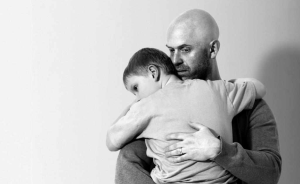As I emphasize to the entrepreneur seated across from me that utilizing his name or the names of his children isn’t conducive to brand building, I notice him shifting uncomfortably in his chair.
Expressions such as “the business is me” and the like are often used too casually, and I can certainly empathize with them – particularly when referring to a neighborhood grocery store or a local garage. But not in the context of branding.
Hint: Consider the ownership factor. In a small business, the entrepreneur maintains sole ownership, and thus, the sense of ownership is exclusively theirs, with customers having no stake in it. They arrive, receive service, pay, and depart. A business brand stands as an entity on its own – owned by the entrepreneur yet belonging to the consumers as well.
Consumers opt for a brand because it embodies a robust and transparent value system, symbolizes status, signifies a specific quality, or offers convenience (in the relationship between the consumer and the brand, not externally, yet still recognized as a distinct entity).
A genuine brand is seen by its consumers as an essential aspect of their personalities, elevating their lives, hence, it can never be a person (unless that individual foregoes themselves and becomes the common property). While Adi Ronen’s article doesn’t articulate what many experience after selling their brand bearing their name, the sentiments are evident, and the unsuccessful outcome of the deal, the losses, and the decline undoubtedly impact the originator as well, propelling them.
Such energy doesn’t dissipate without purpose. A brand is a business ally, and as such, you must understand how to navigate the relationship with it (where a financial agreement is not a taboo). Forward-thinking will craft a collaborative strategy that anticipates all challenges ahead – including separation, which in numerous instances serves as a growth opportunity for both the entrepreneur (such as an exit) and the brand (such as a transition to ownership that fosters its growth).
Once upon a time, I found myself face to face with an individual who had named his business after his son. As the business expanded, he entrusted its leadership to his brother, only to be sidelined in return (homeward bound). These occurrences are not uncommon in the realm of business; family ties often intertwine with both the positive and negative aspects of business dealings. Nevertheless, the same entrepreneur, with tears welling in his eyes, confided in me that his sleepless nights were not due to financial losses, but rather because of the name. “That’s my son’s name,” he lamented, “and you know what they’re doing with that name now?!”
Those aspiring to establish a brand must cast their gaze forward, navigating as adeptly as possible. Pinning the success of a brand (think iPhone or Coca-Cola) solely on one individual entity is akin to balancing on the shoulders of a single person. It’s a weighty responsibility, and while some may argue that a specific individual’s persona doesn’t have to resonate universally, a brand molds itself to suit its consumers. It provides them with a stable platform for self-improvement, bestows value upon their lives, and assumes responsibility for its purpose. In doing so, it attains a meaningful existence, unparalleled flexibility (easily sold, “it’s not my name”), and in certain cases—even immortality.
Sometimes, what starts as a simple post ends up evolving into a full-fledged article… Nevertheless, it’s crucial to recognize that branding processes are pivotal milestones on the path to tremendous success. When executed effectively, they have the power to transform financial investments and talent into a resilient spacecraft, collectively owned by all.




